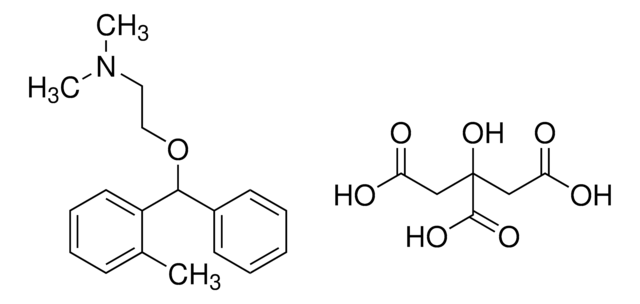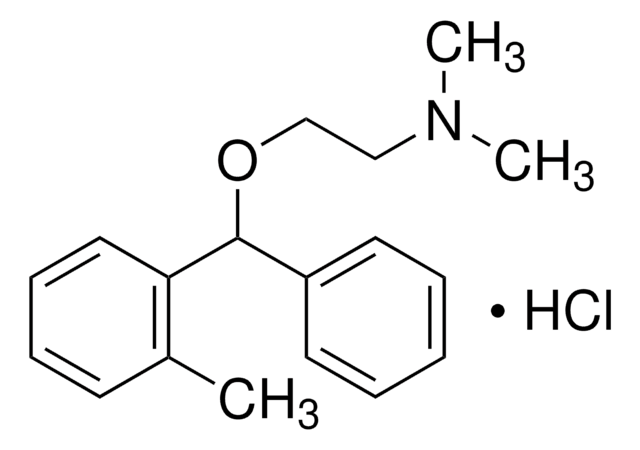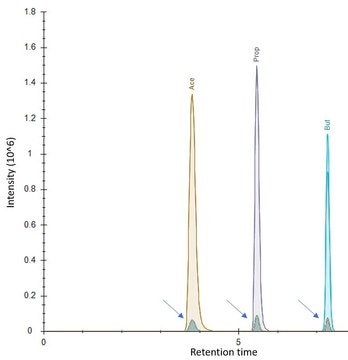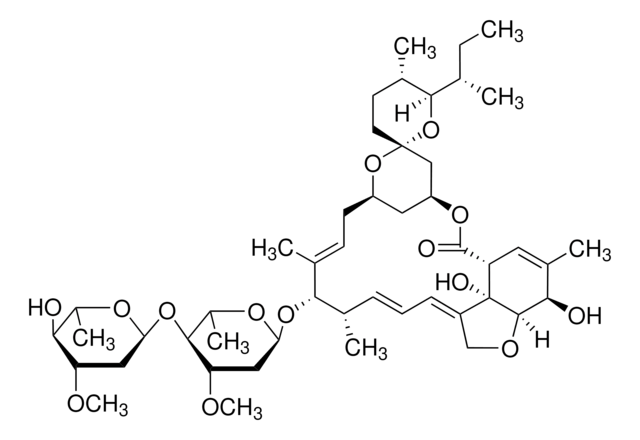O4630
Orphenadrine citrate salt
analytical standard
Synonym(s):
β-Dimethylaminoethyl 2-methylbenzhydryl ether citrate salt, o-Methyldiphenhydramine citrate salt
About This Item
Recommended Products
grade
analytical standard
Quality Level
technique(s)
HPLC: suitable
gas chromatography (GC): suitable
application(s)
forensics and toxicology
pharmaceutical (small molecule)
format
neat
storage temp.
2-8°C
SMILES string
OC(=O)CC(CC(O)=O)C(O)=O.CN(C)CCOC(c1ccccc1)c2ccccc2C
InChI
1S/C18H23NO.C6H8O6/c1-15-9-7-8-12-17(15)18(20-14-13-19(2)3)16-10-5-4-6-11-16;7-4(8)1-3(6(11)12)2-5(9)10/h4-12,18H,13-14H2,1-3H3;3H,1-2H2,(H,7,8)(H,9,10)(H,11,12)
InChI key
XLSFUJUURNFSCL-UHFFFAOYSA-N
Looking for similar products? Visit Product Comparison Guide
Related Categories
Application
Biochem/physiol Actions
signalword
Danger
hcodes
Hazard Classifications
Acute Tox. 3 Oral
wgk_germany
WGK 3
flash_point_f
Not applicable
flash_point_c
Not applicable
Choose from one of the most recent versions:
Certificates of Analysis (COA)
Sorry, we don't have COAs for this product available online at this time.
If you need assistance, please contact Customer Support.
Already Own This Product?
Find documentation for the products that you have recently purchased in the Document Library.
Our team of scientists has experience in all areas of research including Life Science, Material Science, Chemical Synthesis, Chromatography, Analytical and many others.
Contact Technical Service






